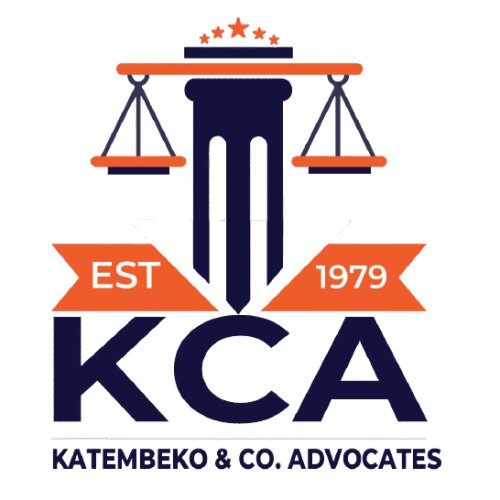Best Energy, Environment & ESG Lawyers in Uganda
Share your needs with us, get contacted by law firms.
Free. Takes 2 min.
Or refine your search by selecting a city:
List of the best lawyers in Uganda
About Energy, Environment & ESG Law in Uganda
Energy, Environment, and ESG (Environmental, Social, and Governance) law in Uganda focuses on the regulation of energy production and consumption, the protection and sustainable management of the environment, and promoting responsible business practices. Uganda is rich in natural resources, including oil, gas, minerals, and a diverse ecosystem. With increasing investments in the energy sector, the country places significant emphasis on environmental protection and sustainability in all projects.
ESG principles are increasingly becoming important for businesses, especially those with international investors or those operating in sectors with high environmental and social impact. These principles promote responsible management in areas such as natural resource utilization, pollution control, community engagement, corporate governance, and compliance with both national and international standards.
Why You May Need a Lawyer
Legal assistance is often necessary in the energy, environment, and ESG fields due to the complexities of regulations and the high financial and environmental risks involved. Common situations where you may require legal help include:
- Securing licenses and permits for energy projects
- Compliance with environmental regulations and standards
- Environmental impact assessments and audits
- Dealing with disputes over land use or resource ownership
- Negotiating Power Purchase Agreements or joint venture agreements
- Advising on responsible business practices and reporting on ESG matters
- Defending against enforcement actions or penalties by regulatory bodies
- Resolving issues relating to community engagement or compensation claims
- Ensuring compliance with international standards if your business is part of global chains
Local Laws Overview
Several key legal instruments and regulatory bodies govern energy, environment, and ESG matters in Uganda. Some of the most relevant laws and policies are:
- The Constitution of Uganda, which provides for sustainable use of natural resources
- The National Environment Act, which sets out the framework for environmental protection and management
- The Electricity Act, Petroleum (Exploration, Development and Production) Act, and the Petroleum (Refining, Conversion, Transmission and Midstream Storage) Act, which regulate different stages of energy production and distribution
- The Mining Act, governing mineral exploration and mining
- Environmental Impact Assessment (EIA) Regulations, requiring EIAs for certain projects
- National Oil and Gas Policy, guiding responsible development of oil and gas resources
- Environmental and social safeguards policies, often required for international funding or partnerships
- Laws on occupational safety, labor, and community rights related to ESG
Regulatory authorities such as the National Environment Management Authority (NEMA), Ministry of Energy and Mineral Development, Electricity Regulatory Authority (ERA), and the Uganda Petroleum Authority play a key role in implementation and enforcement.
Frequently Asked Questions
What is ESG and why does it matter in Uganda?
ESG stands for Environmental, Social, and Governance. It refers to a set of standards for a company’s operations that socially conscious investors use to screen potential investments. In Uganda, following ESG standards is important for accessing international markets, attracting investors, and fostering sustainable development.
Do I need an Environmental Impact Assessment for my project?
Yes, if your project is likely to have significant environmental effects (including most energy or infrastructure developments), the law requires you to conduct an Environmental Impact Assessment and obtain approval from NEMA before you start.
What legal permits are needed for energy projects?
Energy projects may require different licenses and permits, including generation, transmission, and distribution licenses, environmental approvals, and land use consents from relevant government agencies.
How can communities be compensated for land or resource use?
The law requires fair and adequate compensation for communities affected by energy, mining, or infrastructure projects. Compensation covers land, crops, buildings, and sometimes relocation. The process involves consultations, valuations, and can be challenged in courts if not agreeable.
How are environmental offenses punished in Uganda?
Penalties for environmental offenses include fines, suspension of licenses, and in some cases imprisonment. The severity depends on the nature and extent of the violation.
Can NGOs challenge projects that harm the environment?
Yes, NGOs, affected individuals, and communities have the legal right to challenge projects or actions that may harm the environment, either through administrative complaints or by filing lawsuits.
What ESG reporting is required for businesses?
While ESG reporting is not yet mandatory for all businesses in Uganda, some sectors and financial markets may require ESG risk disclosures. International investors often require detailed ESG reporting.
How does one resolve disputes related to energy or environment?
Disputes can be resolved through negotiation, mediation, or litigation in Ugandan courts. Some contracts specify arbitration as the preferred dispute resolution mechanism.
What international treaties does Uganda follow for environment and ESG?
Uganda is a party to several international environmental treaties such as the Convention on Biological Diversity, the Paris Agreement on climate change, and the African Convention on the Conservation of Nature and Natural Resources. These inform national laws and policies.
Are there incentives for green energy investments?
Yes, Uganda has created various incentives for investments in renewable and clean energy, such as tax exemptions, grants, and preferential electricity purchase tariffs for certain projects.
Additional Resources
For further information, guidance, or support concerning energy, environmental, or ESG matters in Uganda, you can consult the following:
- National Environment Management Authority (NEMA) - Responsible for environmental protection and EIAs
- Ministry of Energy and Mineral Development - Supervises energy and mineral related projects
- Electricity Regulatory Authority (ERA) - Regulates the electricity sector
- Petroleum Authority of Uganda - Manages oil and gas sector operations
- Uganda Investment Authority - Advisory support for investment-related matters
- Environmental Law Association of Uganda - Information and expert contacts
- Legal Aid Service Providers Network (LASPNET) - Assistance with legal aid and referrals
Next Steps
If you need legal assistance in the area of energy, environment, or ESG in Uganda, here is how you can proceed:
- Identify the specific legal issue or question you have
- Gather necessary documents such as permits, land titles, contracts, or correspondences
- Contact a qualified lawyer or legal service experienced in energy, environmental, or ESG law
- Arrange for a legal consultation to discuss your needs and possible solutions
- Follow up on legal advice received and ensure compliance with relevant laws and regulations
- Seek ongoing legal support if your activities involve continuous regulatory compliance
Remember, early legal advice can save time, prevent mistakes, and help you better manage potential risks in the rapidly evolving areas of energy, environment, and ESG law in Uganda.
Lawzana helps you find the best lawyers and law firms in Uganda through a curated and pre-screened list of qualified legal professionals. Our platform offers rankings and detailed profiles of attorneys and law firms, allowing you to compare based on practice areas, including Energy, Environment & ESG, experience, and client feedback.
Each profile includes a description of the firm's areas of practice, client reviews, team members and partners, year of establishment, spoken languages, office locations, contact information, social media presence, and any published articles or resources. Most firms on our platform speak English and are experienced in both local and international legal matters.
Get a quote from top-rated law firms in Uganda — quickly, securely, and without unnecessary hassle.
Disclaimer:
The information provided on this page is for general informational purposes only and does not constitute legal advice. While we strive to ensure the accuracy and relevance of the content, legal information may change over time, and interpretations of the law can vary. You should always consult with a qualified legal professional for advice specific to your situation.
We disclaim all liability for actions taken or not taken based on the content of this page. If you believe any information is incorrect or outdated, please contact us, and we will review and update it where appropriate.
Browse energy, environment & esg law firms by service in Uganda
Uganda Attorneys in related practice areas.
Browse energy, environment & esg law firms by city in Uganda
Refine your search by selecting a city.
















